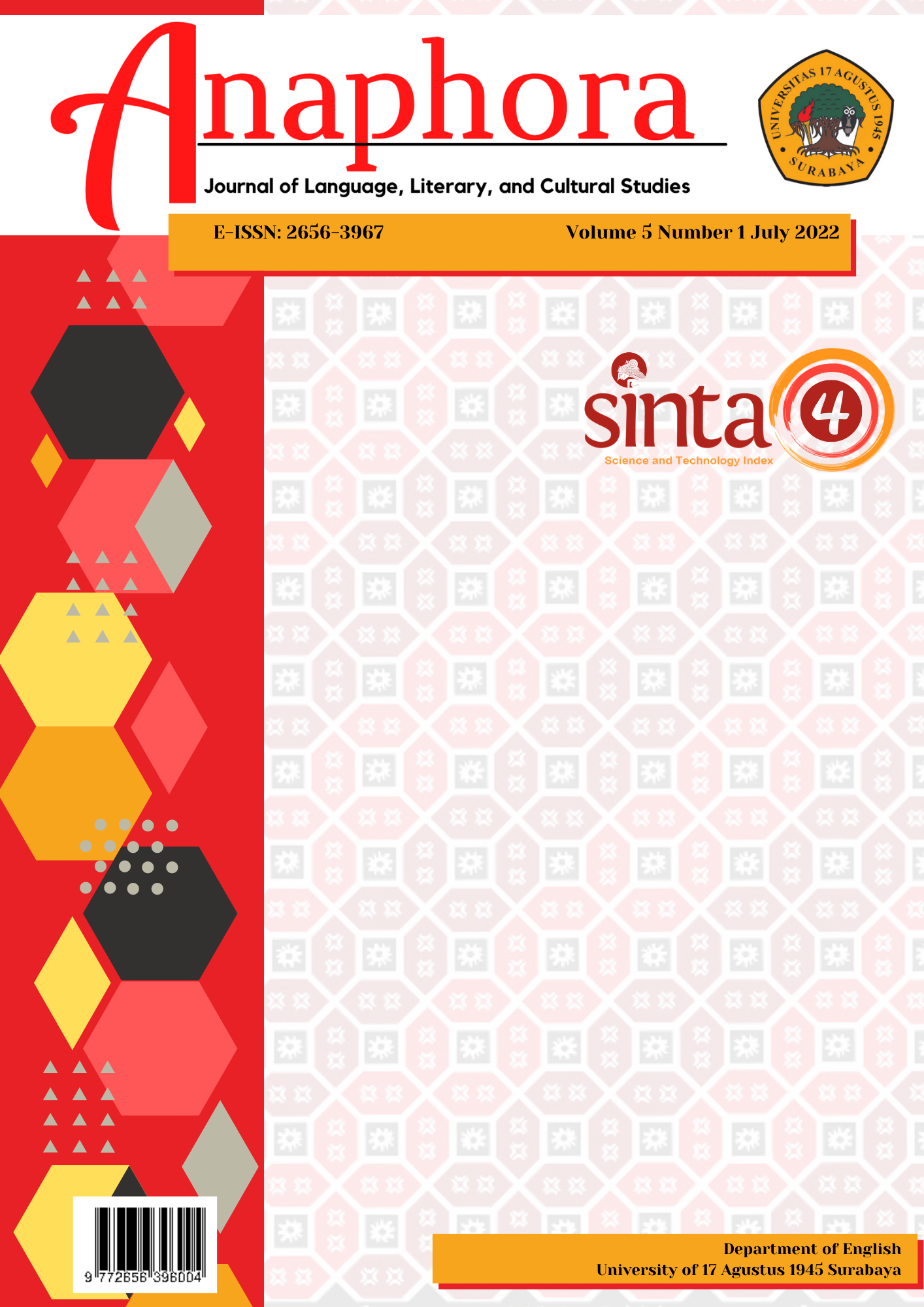Narrative Self-Healing in Ian McEwan’s The Atonement
DOI:
https://doi.org/10.30996/anaphora.v5i1.6050Keywords:
narrative self-healing, Atonement, Ian McEwan, Carl Gustav JungAbstract
This study explores Briony's narrative self-healing to promote her healing. The purpose of this study is to clarify the portrayal of narrative self-healing in Atonement. The author adopts a psychology-analytical approach, focusing on the Four Stages of Psychotherapy in particular (Jung, 1966: 53-75). Confession, explanation, education, and transformation are the four stages of Jung's four-stage psychotherapy. The author also uses qualitative descriptive analysis to examine the various forms of Briony's narrative self-healing in Atonement. Through this study, the author learns how Briony reveals her narrative self-healing in Atonement, including her confession of her guilt that she accused Robbie of doing bad things, her explanation of her guilts to Robbie, her explanation of her effort to make some apologies for her guilty and the transformation of her guilt feeling.
Downloads
Downloads
Published
How to Cite
Issue
Section
License
Authors whose manuscript is published will approve the following provisions:
-
The right to publication of all journal material published on the jurnal anaphora website is held by the editorial board with the author's knowledge (moral rights remain the property of the author).
-
The formal legal provisions for access to digital articles of this electronic journal are subject to the terms of the Creative Commons Attribution-ShareAlike (CC BY-SA) license, which means Jurnal Persona reserves the right to store, modify the format, administer in database, maintain and publish articles without requesting permission from the Author as long as it keeps the Author's name as the owner of Copyright.
-
Printed and electronic published manuscripts are open access for educational, research and library purposes. In addition to these objectives, the editorial board shall not be liable for violations of copyright law.















